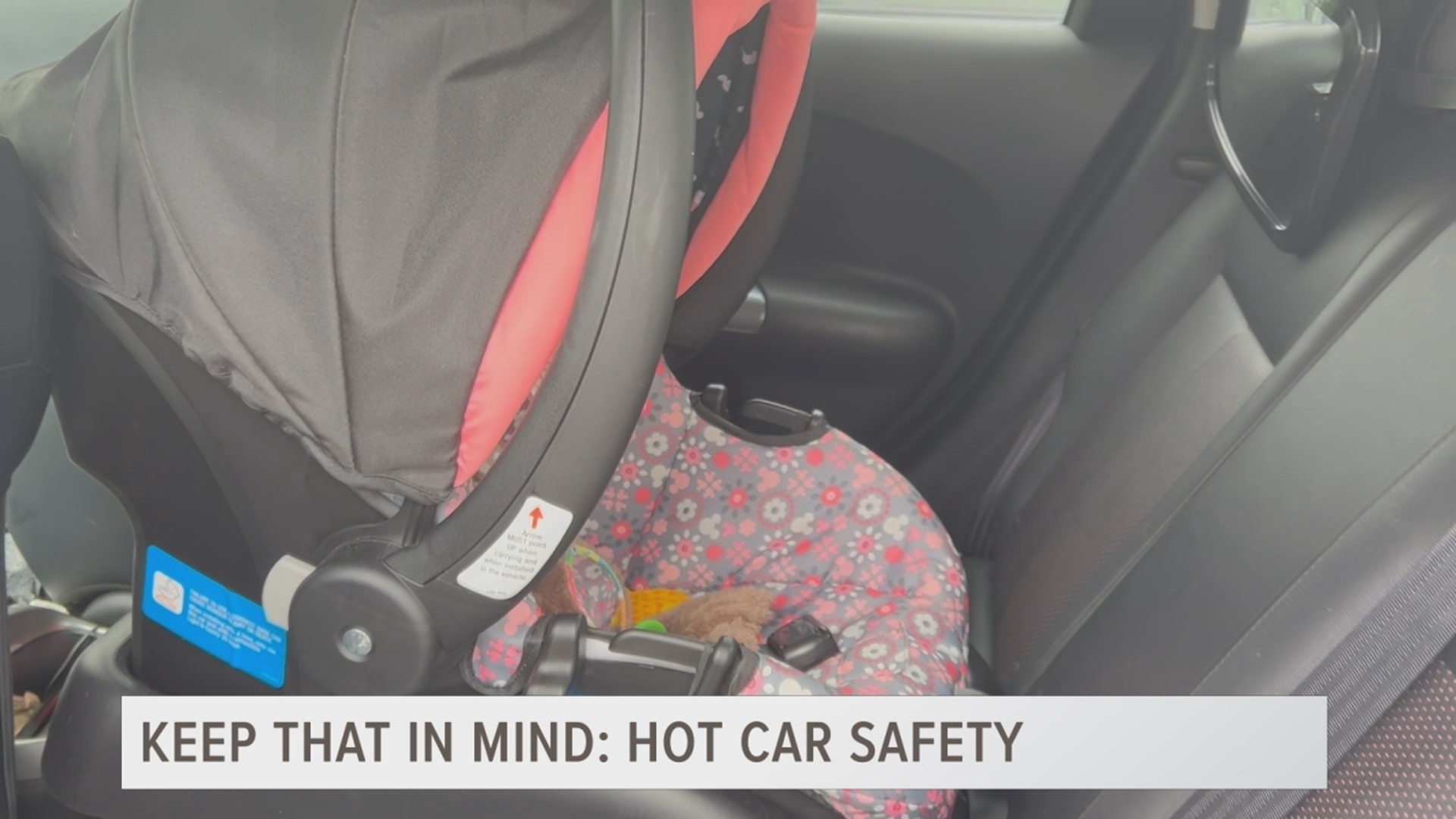MEMPHIS, Tenn. — The first heat wave of the summer has set its sights on Memphis. High temperatures will be in the mid to upper 90s by Friday and into the weekend, and increased humidity will make the temperature feel like over 100 degrees at times.
Staying safe in the heat
- Stay hydrated by drinking plenty of water
- Avoid alcohol and carbonated drinks
- Take plenty of breaks in a cool, shady place
- Wear light, loose fitting clothing
- Apply and re-apply sunscreen
- Check on friends, family, and neighbors
Child and pet safety is another concern with hot weather. Don't leave a child or a pet in a hot car where they can quickly become overheated risking serious injury or death.
As a reminder, always double check the backseat every time when leaving your car. Consider placing a stuffed animal or toy up front as a reminder, or put your purse or other item you would pick up in the backseat with your child.
Don't forget about your pets! Bring them inside to cool down and make sure they have plenty of water. When walking your pets, remember that the pavement can be hot enough to burn their paws. Walk your pets early in the morning or late in the day, and keep them in the grass and off the pavement.
Heat exhaustion and heat stroke
Know the signs and symptoms of heat exhaustion and heat stroke. Wear lightweight and loose fitting clothing when possible. To reduce risk during outdoor work, the Occupational Safety and Health Administration recommends scheduling frequent rest breaks in shaded or air conditioned environments. Anyone overcome by heat should be moved to a cool and shaded location. Heat stroke is an emergency!
Some symptoms of heat exhaustion include dizziness, excessive sweating, pale/clammy skin, vomiting, rapid or weak pulse, and muscle cramps. If you experience any of these symptoms, make sure you get to a cooler place with air conditioning, drink water if you’re conscious, and take cold showers.
Heat stoke is more serious than heat exhaustion, mainly because having a stroke caused by heat likely prevents you from nursing or caring for yourself. A heat stroke requires an immediate response.
Symptoms of a heat stroke include headaches or confusion, inability to sweat, body temperature above 103, vomiting, rapid or strong pulse, and loss of consciousness. If someone experiences a heat stroke, start by calling 911. Then move to a cooler place, cool yourself using cloths, and don’t drink any fluids as you wait for help to come.
To reduce the chances of heat exhaustion or heat stroke, stay hydrated and never leave children, seniors or pets in locked vehicles during high heat days, not even for a few minutes.

